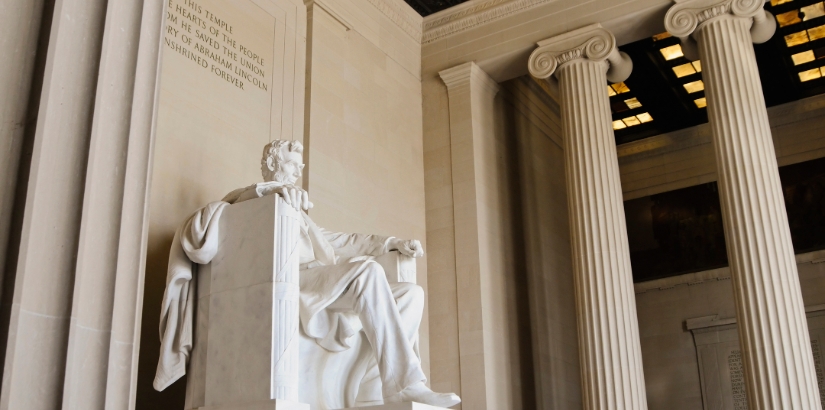Friday Reflection | July 23, 2021
In 2018, when the organizers for the Tokyo 2020 Olympics decided on the slogan “Hope Lights Our Way” for the Olympic Torch Relay, they couldn’t have known how apt it would be.
For Olympic athletes and the host country of Japan, the past year has required tremendous adaption and commitment of both time and money based on the hope that the world would emerge from the pandemic in time for the games. Herculean efforts were made to avoid full cancelation – which hasn’t happened since World War II canceled the 1940 and 1944 Olympic Games. Investors have been on a similar journey, adapting to the barrage of pandemic news and Federal stimulus efforts all with the hope that the global economy would “return to normal” as vaccinations increased and lockdown measures decreased.
In both cases, that hope has paid off – but the path hasn’t been without volatility and uncertainty. Over the next two weeks, Olympic stadiums devoid of spectators will be a stark reminder that hope and reality don’t always follow the same timeline in markets or sports.
Tough Year to Host
The Olympics have become a polarizing issue for the host nation. The normally joyous tradition of Opening Ceremony has been clouded by fears that the games could become a superspreader event. This concern is key because Japan’s vaccination rate of under 20% is among the lowest of wealthy nations. Local residents have expressed opposition, with 83% of Japanese citizens surveyed in May saying they did not want Tokyo to host the games due to the ongoing pandemic.[1]
Japan has invested more than $15.4 billion to prepare for the Olympic Games on an official basis, and unofficial audits have put the price tag well over $28 billion.[2] These costs inflated by $2.8 billion due to pandemic adaptations and the one-year delay. That necessitated other cost saving measures, including organizers’ decision to keep Tokyo 2020 for all branding to avoid changing millions of t-shirts and signage to 2021.
The spectacle has provided another chapter in the all too familiar tug-of-war between the economic arguments for re-opening versus the public health benefits of continued precaution. More than 11,000 athletes from 200 countries are expected to descend into the Olympic village just as Japan has entered its fourth COVID-19 state of emergency after a significant spike in cases. These renewed restrictions, which will last through the entirety of the Games, require restaurants to close by 8 pm, prohibits alcohol sales, and encourages citizens to stay home whenever possible. This impacts both local businesses and major companies who advertised at the venues, dampening the economic boost that traditionally accompanies a massive influx of international tourists.
Parallel Stories
Global investment markets are facing a similar balancing act. Businesses are re-opening and consumers are deploying stimulus cash on an array of newfound freedoms. The economy is growing at an impressive pace, with the US GDP expected to leap by 7% this year in the IMF’s latest forecast.[3] Investors are wary, as another surge of Covid-19 infections raises the spectre of a fresh wave of lockdowns and restrictions that would hamper the economic recovery underway.
A jump of 5.4% in June’s inflation report, as measured by the consumer price index, raised some eyebrows this past week. A majority of the increase in prices came from new and used cars, out-of-town lodging, and airfares – all of which can be reasonably expected to ease as the reopening sorts itself out. That said, it’s worth acknowledging that ‘transitory inflation’ could still mean higher prices for the coming 12-24 months as supply chain and consumer demand issues are resolved.
A Marathon, Not a Sprint
The S&P 500 is up significantly this year and hasn’t experienced a pullback of more than 5% since last fall, an environment ripe for some correction in stock prices. But that doesn’t mean it’s all doom and gloom for stock investors from here. Periodic corrections can be healthy for a bull market since they push valuations back in check, and present buying opportunities for newly discounted stocks.
On Monday, US stock markets declined by more than 2% as fears over the Delta variant were renewed. The dip was short lived, with investors erasing the losses over the following two days pushing stocks to finish the week higher. This volatility offered a microcosm of current investor sentiment. There are clouds on the horizon that can’t be ignored, but the present remains bullish. Monetary stimulus and liquidity abound, consumers are armed with savings and ready to release pent-up demand, and companies are enjoying blockbuster earnings growth while progress continues on vaccinations.
The Olympics reliably provide great drama. Whether it’s enough to justify the cognitive dissonance of hammering forward with the Games amid a health crisis is another question.[4] We believe investing should be far less dramatic, and we continue to steward portfolios in a balanced approach while we cheer our global athletes from afar.
References
[1] A new poll in Japan finds 83 percent don’t want the Olympics this summer New York Times
[2] The dire economics of the Olympics Axios
[3] IMF raises U.S. 2021 growth forecast to 7%, assumes Biden spending plans pass Reuters
[4] Here Come the Olympics, Thoroughly on Edge WSJ
 | About Brian Kozel, CFP®Brian is a partner, senior advisor, and Chief Investment Officer at North Berkeley Wealth Management. Brian helps clients feel confident as they navigate their financial journey. |
This commentary on this website reflects the personal opinions, viewpoints, and analyses of the North Berkeley Wealth Management (“North Berkeley”) employees providing such comments, and should not be regarded as a description of advisory services provided by North Berkeley or performance returns of any North Berkeley client. The views reflected in the commentary are subject to change at any time without notice. Nothing on this website constitutes investment advice, performance data, or any recommendation that any particular security, portfolio of securities, transaction, or investment strategy is suitable for any specific person. Any mention of a particular security and related performance data is not a recommendation to buy or sell that security. North Berkeley manages its clients’ accounts using a variety of investment techniques and strategies, which are not necessarily discussed in the commentary. Investments in securities involve the risk of loss. Past performance is no guarantee of future results.



